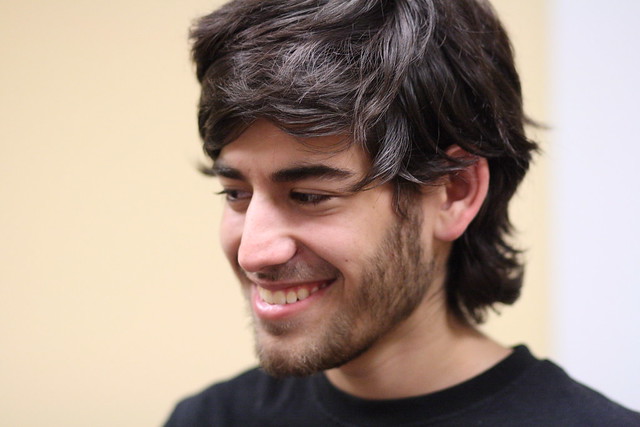Now, like so many creative and far above average intelligent people, he killed himself; he was only 26.

Although we find much rationality in all he has done before and generally sneer upon the suggestion that something like wanting kids could be possibly irrational, there seems to be no question in this case: Aaron acted irrationally, because there cannot, must not be rational suicide. And yet, more and more of the most rational people commit suicide. Suicide rates are increasing especially in technologically advanced and secular societies like Japan’s and Denmark’s, but suicide rates are climbing in almost all subcultures and groups, say among students or soldiers (this year is yet again a record year for suicide among US soldiers).
Measures of well-being and positive affect are no longer naïve about people having to keep up a happy façade, and suicides rates increase along with those measures [Daly 2011]. The conclusion that depression is especially distressing if surrounded by happy people seems ad hoc and too convenient. Modernization implies individualization and rising suicide rates for a long time to come. What distinguishes the modern person, say a highly educated baby boomer in her midlife crisis, is a "postmodern" moral relativism and neo-enlightenment about human irrationality, about that consciousness is anyway merely a sort of self-delusion, and suspicion about the idea that one is an actor rather than merely an observer of one’s actions, a crisis of the idea of agency and responsibility, all accompanied and enhanced with the cold utilitarianism that is exercised by functioning in a technologically and socially demanding environment that requires ever ongoing re-adaptation.

Source: Read more about Aaron and his battle with US “justice” on motherboard here.
We must address suicide anew in order to be meaningful in such a modern perception, where the traditional response fails to reach the target audience, because the usual reaction is, in that very perspective at least, naively moralist, or even the dishonest self-interested demand of an exploitative society that one for whatever reason does not consent with or feels abandoned by. “Should I kill myself?” needs an honest answer that respects the validity of that perception of modern individuals who contemplate suicide, as we all do, since all ethical people ask "What should I do?"
Decision theory is based on rational actors being defined via aiming for non-regret after decisions. Especially in the presence of large uncertainty, when I cannot know the regret in the future situations that my decisions will lead to, suicide is clearly a rational answer, because non-regret is guarantied. For a highly intelligent and moreover rational person, the question is not whether I should kill myself, but what "I" exactly is and how much of it should I kill.
----------------------------------
Daly, M.C.; Oswald, A.J.; Wilson, D.; Wu,S.: “Dark contrasts: The paradox of high rates of suicide in happy places.”Journal of Economic Behavior&Organization 80(3), 435-442 (2011)





Comments